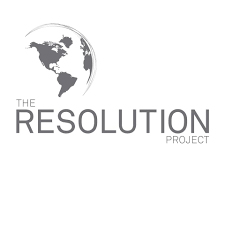Sixty years ago last month, Clara Luper sat down at the Katz Drug Store counter in Oklahoma City with her two children and several members of the NAACP Youth Council, refusing to leave until they were served.
Her efforts over the next several years desegregated hundreds of establishments across Oklahoma and led to one of the most successful strategies of the Civil Rights Movement — the sit-in protest. The anniversary of this historic moment in my hometown reminded me of two things that have become core to my pursuits over the past several years: you don’t have to be rich or famous to create change, and local solutions can create great impact.
If you like this, subscribe here for more stories that Inspire The Future.
I spent the better part of my youth wondering what my own impact would be on this world. At 20, I was already a year older than Mark Zuckerberg was when he created “The Facebook.”
I was a college kid having a serious quarter-life crisis. Growing up, I had been told to “dream big” and to “change the world” — but the only thing that was big was my dream, and the only thing I was changing was my major.
With the weight of the world on my shoulders, I felt powerless. However, I then got involved with a group of young social entrepreneurs who had created small but meaningful programs: a custom apparel company employing women transitioning out of homelessness, and a children’s book company promoting cultural literacy in the U.S. while funding educational initiatives in developing countries. What these organizations lacked in size, they made up for in impact. Then it hit me — I was letting the debilitating fear of failing to solve global problems keep me from making any impact at all. I realized that I may not be able to change the world, but I could change my community. Ever since, over the past six years, I have worked to create innovative solutions to local challenges.
While in college, I realized that my hometown, Oklahoma City, had no job opportunities for individuals experiencing homelessness who had high barriers to traditional employment. Five years ago, I co-founded The Curbside Chronicle, a magazine sold by individuals experiencing homelessness. We adapted the time-tested street paper model to fit the socioeconomic realities of Oklahoma City, creating a program that builds job skills, time management, and financial success for our magazine vendors. Through Curbside, more than 100 people have ended their homelessness, and dozens more have moved on to steady employment. I’m picture above with my wife, Ranya, celebrating the Curbside Chronicle’s fifth year.
Three years ago, I moved to an economically diverse neighborhood and realized that many teens in my area were hungry for opportunity, but job prospects were sparse. After a year of research and planning, I started Sasquatch Shaved Ice, a nonprofit snow cone stand that employs low-income teens from my neighborhood. We provide job skills training and college prep and financial literacy workshops, and also match dollar-for-dollar what our employees save towards their future educational goals. With two seasons under our belt, 100% of our employees have graduated from high school in a neighborhood where only 58% of adults have a high school diploma.
Here’s my point: don’t fixate on solving the big, heavy problems of this world. You’re probably not the next Mark Zuckerberg, and that’s OK. Instead, focus on creating incremental change in your own community. I may never really change the world holistically — but for the 40 Curbside vendors who moved into housing in 2017 and the 5 Sasquatch employees who graduated high school this year, the world has changed.
The world puts an immense amount of pressure on young people these days. Global warming, economic disparity, and educational inequity are a few of the urgent, enormous challenges that millennials are tasked with addressing. With temperatures rising 1.4 degrees each year and 1.56 million individuals experiencing homelessness annually in the U.S. alone, the task of combating just one of the major crises we are facing seems impossibly daunting. The truth is that you can’t solve a global crisis alone, and neither can I — but together, our cumulative efforts can and will.
I’m passionate about creating supportive employment opportunities for underserved populations in Oklahoma City. What are you passionate about? The decline of bees, access to clean water, decreasing meat consumption? With every challenge comes an opportunity to create impact. In the singular, I am just one man on this pale blue dot — but together, we are a powerful force of change that culminates in national and global shifts. I won’t change the world, but we will. Let’s get to work.
Whitley O’Connor is a social entrepreneur, employment advocate, and Fellow of The Resolution Project.
If you like this, subscribe here for more stories that Inspire The Future.




































